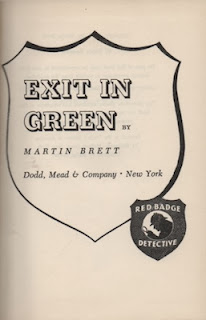Coaching courtesy of an old Eaton's ad published in the 23 December 1933 Globe & Mail. The venerable department store recommended forty-two books, though only five are Canadian: Cannibal Quest by Gordon Sinclair, My Vision for Canada by William Arthur Deacon, The Girl from Glengarry by Ralph Connor, The Master of Jalna by Mazo de la Roche, and for the kiddies, Picture History of Canada by Jessie McEwan and Kathleen Moore.
The young lady gracing the cover of that month's Maclean's appears unfazed by the slim pickings.
You just know that first gift is a book. I'm betting the second is an album of Duke Ellington 78s. The third is, of course, a box of Laura Secord chocolates.
Fast-forward eight decades to this, my annual year-end summary. There will be gift suggestions.
This got off to a good start in January with Philip Child's Mr. Ames Against Time, then hit its stride in the first two chapters of Ronald Cocking's Die with Me Lady, before stumbling badly in the third. "Never have I seen a book fall apart quite so dramatically and melodramatically", I wrote in reviewing Cocking's novel. There was no recovery, which is not to say that the marathon didn't have its moments.
I've fallen into the habit of the listing the three books that are most deserving of reissue. In 2012, Margaret Millar, the pride of Kitchener, swept all spots. I read only one of her novels in 2013, yet here she is again:
For Maimie's Sake – Grant Allen
Vanish in an Instant – Margaret Millar
A Stranger and Afraid – Marika Robert
Of the twenty-four titles reviewed here this past year, only one, Ross Macdonald's The Dark Tunnel (a/k/a I Die Slowly), is currently in print. I saw a copy in the London Indigo just last week. Imagine!
Mention must also be made of Toronto Doctor by Sol Allen, which vies with Neil Perrin's The Door Between as the strangest Canadian novel I've ever read. This brings me to the good people of the Editing Modernism in Canada Project and Ottawa University Press, who are the recipients of this year's praise.
For six years now, project and press have been bringing new and reissued works by our most significant modernist authors. They're attractive and inexpensive to boot!
If all goes well, next year will see a return to print of Sol Allen's 1928 debut novel They Have Bodies, edited by Brock University's Gregory Betts. For this gift-giving season, I ignore Sinclair, Deacon, Connor, de la Roche and McEwan in recommending the following:
Waste Heritage
Irene Baird
Edited by Colin Hill
The Wrong World
Bertram Brooker
Edited by Gregory Betts
Swinging the Maelstrom
Malcolm Lowry
Edited by Vik Doyen
Introduction by Miguel Mota
Notes by Chris Ackerley
Eight Men Speak
Oscar Ryan et al.
Edited by Alan Filewood
Dry Water
Robert J.C. Stead
Edited by Neil Querengesser
and Jean Horton
And, if I may, I'd like to suggest The Heart Accepts it All, the recently published collection of letters by John Glassco edited by yours truly.
Happy Holidays!


































